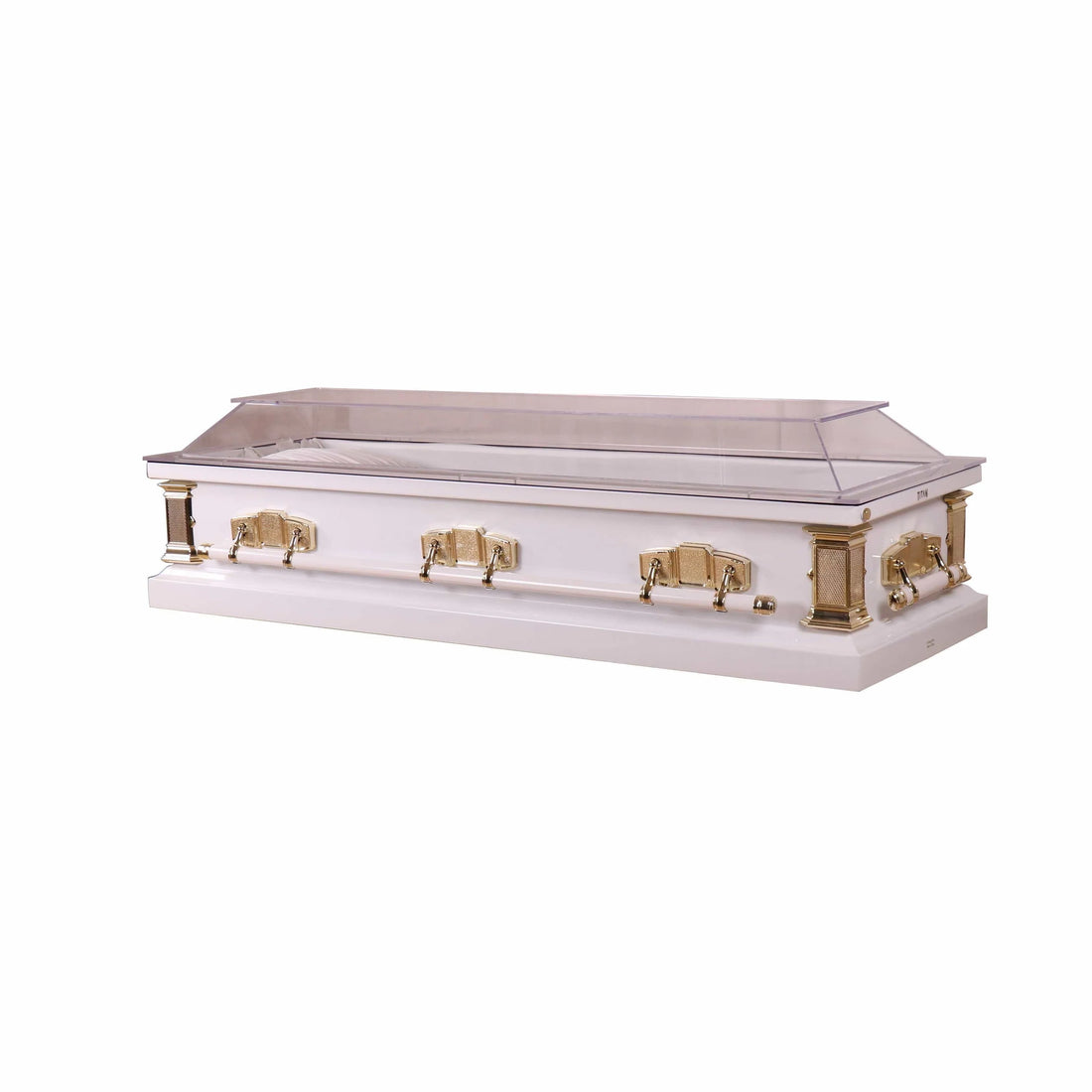When it comes to choosing a casket for a loved one's final resting place, many people tend to think of traditional options such as wood or metal. However, glass caskets are becoming a more popular choice for those looking for something more modern and unique. Over the course of this article, we shall shed light on what is a glass casket and the details associated with the same.
What Are Glass Caskets?
Glass caskets, also known as ‘crystal caskets’ or ‘clear caskets’, are caskets that are made primarily of glass. They are typically made of tempered glass, which is a type of glass that is heated to a high temperature and then rapidly cooled in order to increase its strength and durability. This allows the casket to be both sturdy and transparent, allowing for a unique and modern aesthetic.
[products_recommendations]
Why Choose A Glass Casket?
There are several reasons why someone might choose a glass casket for their loved one. One of the most obvious is that glass caskets offer a unique and modern aesthetic that can be quite striking. In addition, the transparency of the casket allows for a different kind of memorialization, as the deceased can be viewed from all angles. This can be especially meaningful for those who want to remember their loved ones in a unique and modern way.
Additionally, glass caskets are often made with eco-friendly materials and methods, which can be crucial to some families. The transparency of the casket also allows for natural light to enter the burial chamber, which can reduce the need for artificial lighting.
Another reason why someone might choose a glass casket is that they offer a level of transparency that can be comforting to some families. In traditional caskets, the deceased is often hidden behind a closed lid and not visible to family or friends. With a glass casket, the deceased can be viewed by loved ones even after they have passed away.
How Are Glass Caskets Made?
Glass caskets are typically made using a process called ‘fused casting’. This process involves melting silica (silicon dioxide) at a high temperature and then casting it into a mold. The mold is then cooled quickly to create a solid piece of glass.
Once the casket is made, it is then tempered for added strength and durability. Tempering involves heating the casket to a high temperature and then quickly cooling it in order to increase its strength and make it more resistant to breaking.
It is important to note that glass caskets are not entirely transparent; they are often made with frosted glass or colored glass; this allows one to keep some privacy and still be able to see the deceased.
Are Glass Caskets Durable?
Glass caskets are generally considered to be quite durable. This is because they are made with tempered glass, which is a type of glass that is specifically designed to be strong and resistant to breaking. Additionally, glass caskets are often reinforced with metal frames or other materials to further increase their strength and durability.
It is worth noting that glass caskets are generally not designed to be buried underground. Instead, they are typically used in above-ground mausoleums, columbaria, or other indoor spaces.
Are Glass Caskets Expensive?
Glass caskets often cost more than traditional caskets – those made from wood or metal. This is because the process of making a glass casket is more complex and labor-intensive, which can drive up the cost. Additionally, the materials used to make a glass casket can be more expensive than those used to make a traditional casket.
However, it is worth noting that the cost of a casket varies based on the specific casket and the company that makes it. On average, a glass casket costs $2000 and can extend to as much as $10,000.
If you wish to purchase a casket made out of glass, and are wondering from where you can do so, visit our website today. Our newly launched range of glass caskets are durable, made of the best quality materials, and can be opted for in a wide range of styles and designs.
Plan Your Farewell with Grace – Our Pre-Planned Caskets Offer Peace of Mind

![Upgrade to Premium Weight [18-gauge steel]](http://titancasket.com/cdn/shop/products/casketthicknesswithnumbers.png?v=1680642906&width=533)



